- Home
- John Ellsworth
Annie's Verdict (Michael Gresham Legal Thrillers Book 6) Page 2
Annie's Verdict (Michael Gresham Legal Thrillers Book 6) Read online
Page 2
A power of attorney. Wexler would be very pleased. She continued riffling through the lawyer's desk drawers, looking for what she was guessing might be kept there. Sure enough, third drawer down, right side, she found it: a semiautomatic pistol, loaded. Ever so carefully, so as not to disturb the fingerprints and DNA clinging to the gun, she dropped it into a plastic bag, picked up the page she had copied, and left.
She returned to Washington and headed straight to Wexler. Wexler saw the gun, read the stolen power of attorney, and called her brilliant. Then he called the hitman, Rudy, and said to meet him at a Denny's in Foggy Bottom. After the coffee had arrived, Wexler passed the lawyer's gun to Rudy. "Use this," he said. Rudy nodded and slipped the plastic bag and gun into his coat pocket. That's all it took.
The day of the hit rolled around overcast and quite cold. A freeze was predicted for later. Rudy, watching and waiting outside Tybaum's office building, spied the hapless Tybaum walking up the sidewalk to the glass doors. Rudy switched on the GoPro camera mounted on his North Face coat. Wexler wanted a picture of the hit and Rudy was going to give him one--a whole video, for that matter.
It was just before six o'clock p.m., which meant Tybaum was probably working late. It was cold out, but his coat was unzipped. He was wearing a flannel shirt beneath his coat. Rudy took all this in without thinking. Rudy fell in behind him. Perhaps feeling he was being followed, Tybaum abruptly stopped and swung around to stare at his pursuer.
He immediately knew he was being followed. He broke into a run. He had known this day would come once he refused to return the money. He vaulted the railing running along the sidewalk, dropping ten feet onto a sloping driveway that terminated at a basement loading dock. Rudy followed, caught up to Tybaum, and the men struggled against each other before Tybaum again broke free, kicked Rudy in the head, and ran. Rudy recovered and then chased Tybaum up onto the basement loading dock. Gerry went tearing through the warehouse and out the other side. A path took him past the Lincoln Memorial and along the Reflecting Pool, that shallow body of water keeping the Lincoln Memorial and the Washington Monument from sliding into each other. At the near end of the pool, Tybaum made a left and began running obliquely to his earlier path. Just then, as the candidate straightened his left turn into a thirty-yard dash for the far side of the pool, Rudy closed the distance between them and, latex gloves covering his hands, he raised the lawyer's gun, aiming it from can't-miss range at Tybaum's back.
The first round pierced Tybaum's pounding heart; his momentum carried him headlong into the Reflecting Pool. Rudy then closed on the dying man and fired five more rounds into his back. Rudy was a terrific shot: the group was no wider than the mouth of a highball glass. Rudy felt proud. Even hitmen have their standards, he thought to himself as he suddenly turned and headed back the way he had come. He was running for his waiting car and the anonymity of the nearby freeway.
Halfway up the steps of the Lincoln Memorial, a woman turned to look, after the first gunshot. She was down on her knees, engaged in a sex act for pay with the man lurking above her, and she saw Rudy's face, which was familiar because she was a Post subscriber for the "men-seeking-women" section. She didn't know his name, but she'd never forget his face.
Down on her knees, the woman turned back to her work to fulfill the contract she had entered into with the man standing over her. She looked up, and their eyes met. Should we run off? Her look asked her customer. His look said it all: run off only if you want to be in breach of our contract.
So she finished with her work and, the contract completed, the man double-timed down the steps and ran to the far end of the pool and the parking lot beyond.
The woman, on the other hand, was slow to run off because, as she opened her purse for a tissue, her roll of casino quarters fell to the concrete steps, scattering twenty-five-cent pieces up and down. Those were key, those quarters, the coin of the casino realm's slots. So she calmly bent down and began herding the quarters back into her purse. She'd seen a mob hit before and such things no longer frightened her as she'd seen much worse. But there was more. She'd also fulfilled a contract with a United States senator known to her as Stanley J. Jessup, a good ole boy from South Carolina who stayed happy on hookers and whiskey and missed Senate votes.
As she bent down three steps to retrieve the last of the quarters it was then she slipped, banged her head hard against the closest step, and awoke hours later with a Capitol Cop holding a smelling salt under her nose and inquiring, "Can you hear me?"
She didn't respond right away. He massaged her hands and spoke her name again.
"I can hear you," she said. "What a dream. Someone shot someone."
The Capitol Cop spoke into his shoulder mike. "I've found an eyeball."
Down below, the FBI agents heard the news. The woman was helped down the steps and delivered to the agents for a quick round of questions before being taken to the emergency room to be checked out.
"Yes," she told the first suit to reach her. "I saw the whole thing. So did my trick, Senator Stanley J. Jessup."
One special agent looked at the other.
The murder suddenly sprouted first-page prospects. Careers were made from such stories. The agents couldn't miss the possibilities.
The first agent spoke casually so as not to frighten off this songbird.
"You're sure it was Stanley J. Jessup?"
"You want me to describe his penis?"
The agents smiled.
"That won't be necessary. We're quite confident he'll be cooperative."
Then one agent demonstrated the brains that all FBI agents must have. "While she's in the ER getting checked out have the doc swab her mouth for DNA."
"That way we know we have the right senator," the second agent said to the woman.
"Sure," she said.
"And don't drink or eat anything until they're done."
"I already know that," she said. "The swab."
"The swab, exactly."
3
The EMT's cut Gerry out of the ice in the Reflecting Pool at the Lincoln Memorial in D.C. Pictures were taken and observations made; official reports would follow. The coroner counted six bullet holes in Gerry's back.
The Washington D.C. detectives said it was a robbery. Sure, I thought when the TV story played here in Chicago, robbery indeed. That's why the shooter left the $300 in Gerry's pocket he'd pulled out of an ATM not fifteen minutes before he died. His murder made me close my eyes and say a prayer for his soul. I'm Catholic, and that's what I do.
And while Gerry's soul was negotiating passage through heaven's gates, I began negotiating with the Russians for a transfer of the money to Gerry's kids. But before I could put things in motion, I had one big problem: I didn't know his kids, didn't have names, birthdates, Social Security numbers and so forth.
I knew I owed it to Gerry to get myself back to Georgetown and tell the kids everything and get their personal info. He'd trusted me, and I didn't have any choice but to fly out and keep my promise to him.
Later on, I learned that the police wanted to write it off as a robbery. But Gerry's daughter—Mona—insisted it had been a fossil fuel assassination. She accused the oil oligarchs of the crime. But she had zero proof of any such thing. So, the police wrote her off as paranoid and not just a little crazed over her father's death. Behind the scenes, they thought she was a kook. They thought it was just another ho-hum robbery. Except their reports all said the same thing: Gerry's wallet was found in his pocket. The $300 he had withdrawn from an ATM fifteen minutes earlier was still inside the wallet. This entry into the first detectives' report went without comment.
Ever the Curious George, I began nosing around. I called a friend at the U.S. Attorney's Office in D.C. What I learned was compelling. Whoever killed Gerry acted audaciously. Apparently, he did not expect to be arrested for he gunned him down a short hike from the White House, an area crawling with cops and federal law enforcement agents. Then I made a call to Gerry's law office to talk to
his secretary. The office was closed. The recording said they were closed because they were in mourning for Gerry, to call back in three days. So I waited three days and then called again. Much to my surprise, according to the Post, there had been a one-eighty on the investigation: now the FBI was working the case. Which told me there was a suspicion that some federal crime had been committed in Gerry's death.
Three rings then a curt answer.
"Gerry Tybaum's office, can you please hold?"
"I want--"
"Thank you."
I was on hold, just like that. Then the voice returned.
"How may I help you?"
"My name is Michael Gresham. I'm a lawyer in Chicago. Gerry came to see me before he died."
"What is this about?"
"Gerry wanted me to do a job for him."
"What might that have been?"
A light bulb went off in my head. Gerry's receptionist wouldn't be asking me what I was doing for Gerry. No, she would have asked me whether my call was personal or business and, accordingly, directed me either to Gerry's probate lawyers or his law partners. This voice was doing neither. It was inquiring about my work for Gerry. Improper. So, I dodged.
I asked, "Who are you?"
"This is Special Agent Ames. May I get your name, sir?"
"Special Agent as in FBI?"
"Yessir."
"Why is the FBI at my friend's law office?"
"May I get your name, sir? We have the number you're calling from. Getting your name won't be that hard. It would be much easier if just told me who you are. A friendly request, sir."
"Michael Gresham is my name."
"And did you have a case with Mr. Tybaum?"
"No, we were law school buddies. I was just calling to shoot the breeze."
Suddenly the voice wasn't nearly as friendly. "You say you're a lawyer?"
'Yes."
"What kind of law do you practice?"
"I don't see how that's any of your business."
"Well, sir, let me put it this way. We are knee-deep in tracking down all leads that might help us find who killed Mr. Tybaum. Now we have your name. You can either help me out with who you are and why you're calling, or I can send two agents to your office, and we can take your statement."
"Bet me, take my statement," I scoffed.
"Sir?"
"Bet me. There's no way your goons are coming in here and taking my statement."
"Then are you saying you have something to hide?"
"I'm saying the FBI has no right to come in here and question me."
"You're unwilling to cooperate with law enforcement in your friend's death?"
"That's right. I don't usually cooperate with law enforcement in my criminal defense practice. Color me silly, but my clients would rather I didn't cooperate with the police."
"Mr. Gresham, was Mr. Tybaum one of your criminal clients?"
"No, he was not."
"Was he the subject of a criminal investigation such that he might become one of your criminal clients?"
"Not that I'm aware."
"Then there should be no problem. Please tell me why you were calling."
This came out fast. "We had a bet on the Wizards versus the Knicks. He lost, I was calling to collect."
"How much was the wager for?"
"Steak dinner next time he came to Chicago."
"Did he come to Chicago regularly?"
"I have no idea about that."
"Was he in Chicago to talk about financial matters with you?"
Careful now, Michael, I cautioned myself. Martha Stewart did not go to prison for insider trading. She went to prison because the FBI claimed she lied to them. If I lied to them about Gerry coming to Chicago and discussing the Russian bank account, I could open myself to the same kind of liability if the FBI found out I was lying. And they'd have bank statements that led them to his airline ticket and his connection to Chicago. There I was, on the other end of that trip. Coming clean was the only move.
"He came to see me just before he was murdered. He was scared."
"The main purpose of that visit?"
"Confidential. Attorney-client privilege."
"You were his attorney? You represented him?"
There we were again. Technically, Gerry was not my client. Which meant technically I was not his lawyer. I held a power of attorney, but that's not covered by the attorney-client privilege. But here’s the key consideration: upon the death of the the person who gave the power of attorney, the power of attorney is at death rendered void. It no longer exists and the person who received the power of attorney no longer can act as POA.
"I'm not saying yes to that, and I'm not saying no. I'm saying this conversation is concluded."
With that, I disconnected my phone and told Mrs. Lingscheit--my receptionist--not to accept any calls regarding Mr. Tybaum or the FBI.
My hand was shaking as I struggled to replace the phone in its cradle. Damn, these guys are good, I was thinking. Just like that, in less than two minutes, the agent had me backed into a corner about to commit a serious federal crime of lying to the FBI.
The worst part of it? They weren't done with me. They'd be back. In fact, they'd probably show up in my office in the next twenty-four hours.
I was only doing Gerry a favor. I had wanted nothing to do with Russia because I didn't want to go there. He had told me there was no need for that. It could all be done by telephone.
What he didn't tell me about was that the FBI would come crawling over the phone lines and put me in a legal stranglehold. He hadn't warned me about that.
With one simple little call, I had become a name associated with my friend's murder.
Nor was I one step closer to finding out about his kids.
I puttered around the office for an hour, surfing on my computer and studying a few pending files, all the while thinking in the back of my mind about what I should do next. Then I had a quiet lunch with my brown bag. I finally visualized my next step.
I called the bank in Russia. I gave them the account number and the key code and asked for a balance.
"Yes, Mr. Tybaum," said the English speaking customer support representative. "Your balance is twelve-million USD."
"I need to transfer that money to the United States."
"No problem, Mr. Gresham. But we're going to need a fee of one million dollars.”
"What? You do it electronically. There shouldn’t even be a charge.”
"Bank policy with U.S. citizens."
I hung up at that point, a sick feeling washing over me. I wasn't about to return to Russia. Yet I had promised Gerry for the sake of his kids.
It was too much to get my head around right then. I went into my outer office and told Mrs. Lingscheit I was ill, and I was going home. She gave me one of her patented "Ain't gonna happen" looks.
"What?" I asked her.
She answered softly. "The FBI wants to talk to you. I told them you weren't in. But they said they knew you were."
"What? How do they know I'm in?"
She pointed behind me.
I turned and saw a man in a neat business suit, hands on his knees, eyes glowing at me.
"He's the FBI. He wants to talk to you and says he's not leaving until you do."
4
Back into my office I trudged, this time with an FBI agent in tow. I was astounded at how fast they'd moved on me. Plus, it downright pissed me off. No one--much less criminal lawyers--likes the FBI in their office. So we sat down and traded stares. Then he opened a thin folder and pulled out a notepad. He scanned over it and then looked up.
The FBI agent was direct: "Mr. Tybaum's political action committee is known as GULP. It stands for Government Use of Lands and Policy. It had accumulated massive amounts of cash from climate zealots just like Gerry."
"So he had a PAC that wanted to get him elected. That isn't illegal or even suspicious, last time I looked," I said.
The agent was impassive. He'd said his name w
as Harold Leders and he was out of Chicago. It wasn't an even match so far, as I was still trying to recover from how fast I had gone from being Michael Gresham, relative nobody, to someone the FBI wanted to question. Agent Leders had me on my heels from the moment he identified himself.
He continued. "GULP has been very active. It's a liberal PAC with some very famous supporters on the East and West coasts. People you might see in the Hollywood News and New York Magazine. Are you following me so far?"
"I am. But so what?"
"Mr. Tybaum made a withdrawal from the PAC's bank account about one month before he died."
"And so?"
"So, it was for twelve-million dollars and change. We want to know whether he spoke to you about this before he died?"
That was twice in one day I'd heard that number.
"That number isn't part of my vocabulary. I don't talk those numbers."
Special Agent Leders stared a hole through my skull. He apparently did talk those numbers. He just tossed it out like Gerry had written a check for nineteen dollars, and they wanted to know about it. Ordinarily, I would have maybe discussed what I knew, just put it out there. But Gerry's mission to me had been to help his kids get his money, not help the FBI. Then I began thinking I'd need deposit dates and that kind of thing before I made any decision about revealing what I knew. Plus, I'd need to know what withdrawal and expenditure powers Gerry had at the PAC. Maybe the withdrawal was totally authorized by its charter, and I would be a dupe for revealing it. Worse, maybe his kids would sue me for breaching the attorney-client confidentiality law--if it even applied--if I did reveal it and they didn't get their money. Then there was Annie, Gerry's special needs daughter. Her story tugged at my heartstrings. I owed her and felt it clear down to my toes. There was a good dozen movies playing in my head, so I didn't want to say too much. Again, withholding information from the FBI.... There had to be some way out of this.

 Girl, Under Oath (Michael Gresham Series)
Girl, Under Oath (Michael Gresham Series)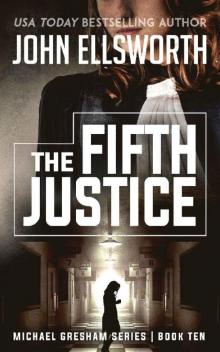 The Fifth Justice (Michael Gresham Legal Thrillers Book 10)
The Fifth Justice (Michael Gresham Legal Thrillers Book 10) Michael Gresham (Book 5): Sakharov the Bear
Michael Gresham (Book 5): Sakharov the Bear Voices In The Walls: A Psychological Thriller (Michael Gresham Series)
Voices In The Walls: A Psychological Thriller (Michael Gresham Series)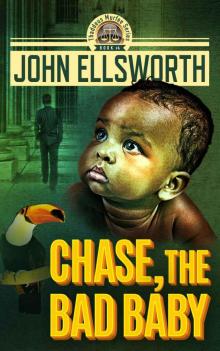 Chase, the Bad Baby: A Legal and Medical Thriller (Thaddeus Murfee Legal Thriller Series Book 4)
Chase, the Bad Baby: A Legal and Medical Thriller (Thaddeus Murfee Legal Thriller Series Book 4)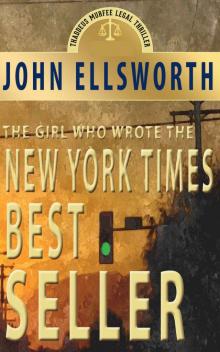 The Girl Who Wrote The New York Times Bestseller: A Novel (Thaddeus Murfee Legal Thrillers Book 8)
The Girl Who Wrote The New York Times Bestseller: A Novel (Thaddeus Murfee Legal Thrillers Book 8)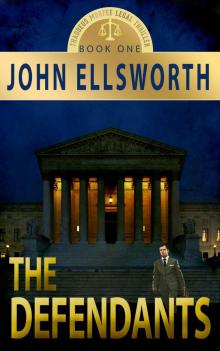 The Defendants: Crime Fiction & Legal Thriller (Thaddeus Murfee Legal Thriller Series Book 1)
The Defendants: Crime Fiction & Legal Thriller (Thaddeus Murfee Legal Thriller Series Book 1) Hellfire (Sisters In Law Book 2)
Hellfire (Sisters In Law Book 2)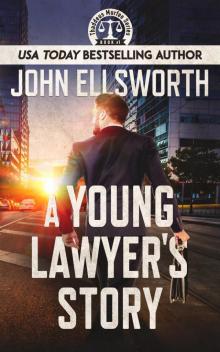 A Young Lawyer's story
A Young Lawyer's story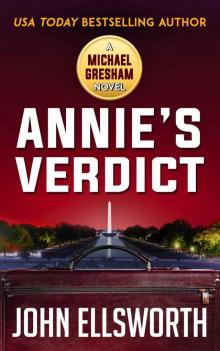 Annie's Verdict (Michael Gresham Legal Thrillers Book 6)
Annie's Verdict (Michael Gresham Legal Thrillers Book 6)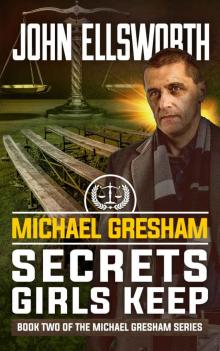 Legal Thriller: Michael Gresham: Secrets Girls Keep: A Courtroom Drama (Michael Gresham Legal Thriller Series Book 2)
Legal Thriller: Michael Gresham: Secrets Girls Keep: A Courtroom Drama (Michael Gresham Legal Thriller Series Book 2)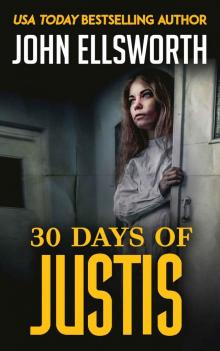 30 Days of Justis
30 Days of Justis Sakharov the Bear (Michael Gresham Legal Thrillers Book 5)
Sakharov the Bear (Michael Gresham Legal Thrillers Book 5)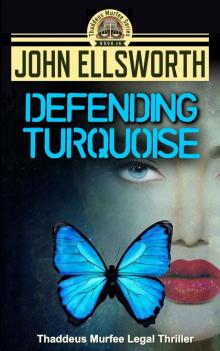 Defending Turquoise (Thaddeus Murfee Legal Thriller Series Book 5)
Defending Turquoise (Thaddeus Murfee Legal Thriller Series Book 5)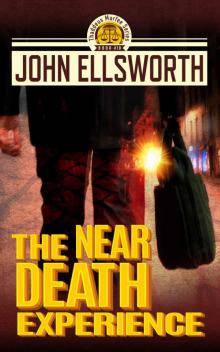 The Near Death Experience (Thaddeus Murfee Legal Thriller Series Book 10)
The Near Death Experience (Thaddeus Murfee Legal Thriller Series Book 10)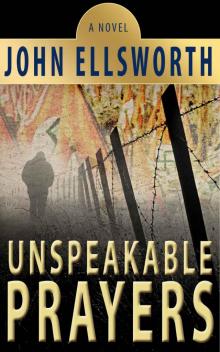 Unspeakable Prayers: WW II to Present Day (Thaddeus Murfee Series of Legal Thrillers)
Unspeakable Prayers: WW II to Present Day (Thaddeus Murfee Series of Legal Thrillers)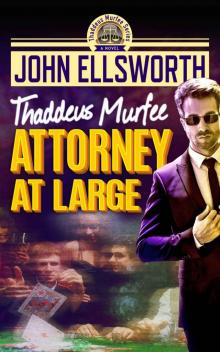 Attorney at Large (Thaddeus Murfee Legal Thriller Series Book 3)
Attorney at Large (Thaddeus Murfee Legal Thriller Series Book 3)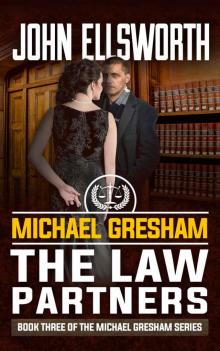 The Law Partners (Michael Gresham Legal Thriller Series Book 3)
The Law Partners (Michael Gresham Legal Thriller Series Book 3)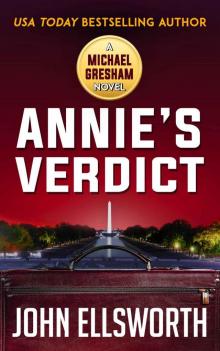 Annie's Verdict
Annie's Verdict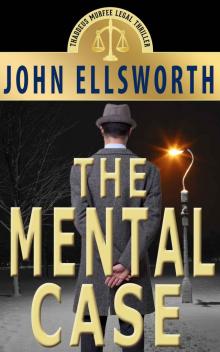 The Mental Case (Thaddeus Murfee Legal Thriller Series Book 6)
The Mental Case (Thaddeus Murfee Legal Thriller Series Book 6)